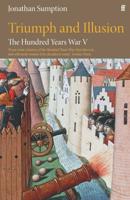Publisher's Synopsis
Lviv is in western Ukraine near the Polish border. The town had a checkered history given the often-shifting borders in Europe. Before World War I, it was part of the Austrian Empire and was known as Lemberg. Between that time and World War II, it was part of Poland when it became known as Lwow and had the country's third largest Jewish population. It became part of Soviet Ukraine in 1939 and bore the name that it does now. There were about 150,000 to 160,000 Jews in the town when the Germans invaded in 1941. After the Russians liberated Lviv in 1944, about 2,500 remained, many of whom chose Polish citizenship, leaving the city almost entirely emptied of its Jewish inhabitants. All these transitions are chronicled in this book.
In the years before these changes took place, Jews who lived here endured struggles both economic and violent. In the 16th and 17th centuries, their relations with Christians were marked by great tension over economic affairs as Jews attempted to break the Christian monopoly on local markets. But more ominous was the uprising of Ukrainian Cossacks led in 1648 by Bohdan Khmelnytsky whose goal was to drive out the country's Polish magnates and establish a Ukrainian state. That may have made him a hero in Ukraine, where a monument to him was erected in Kyiv in 1888, but his army also attacked Jews in the villages, towns and small towns, mercilessly destroying, robbing and killing everywhere -- massacres that have been mourned by Jews as an unprecedented outburst of anti-Jewish violence and a precursor of the pogroms in the Russian empire, if not the Holocaust.
The book ends with a long, detailed section on the "Annihilation of the Jews of Lwow" detailing the events of the Holocaust. Some survived the German occupation. They fell into three categories: those who disguised themselves and had false documents; the "forest people" who had roamed the land with the partisans and were left destitute; and the "mice" who had hidden in caves, ducts, ditches and bunkers, and emerged weak and exhausted from lack of movement and lack of fresh air in their hiding places.









